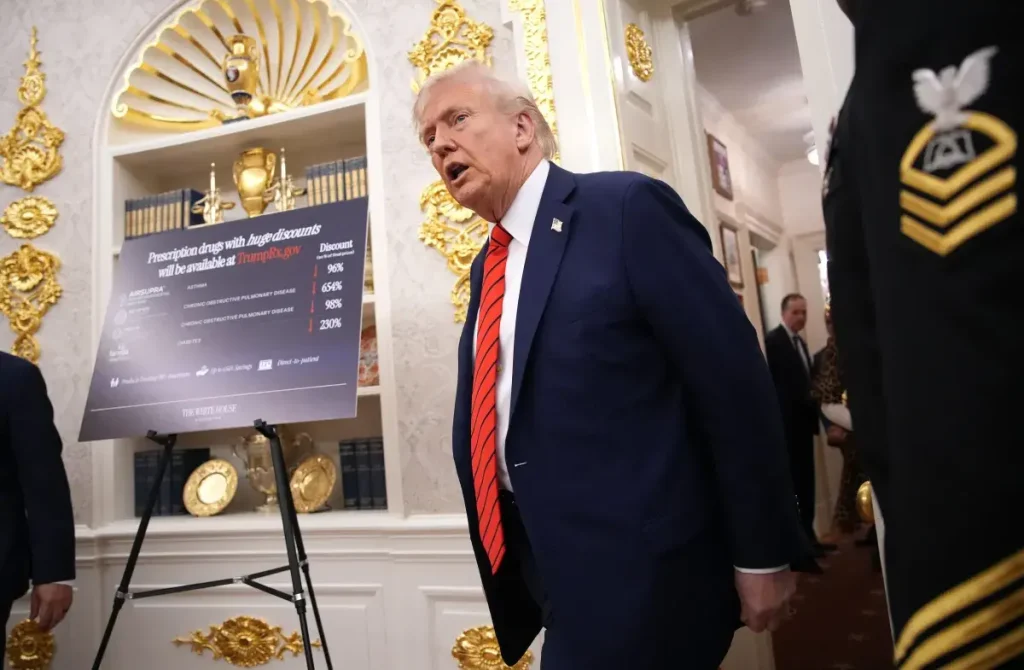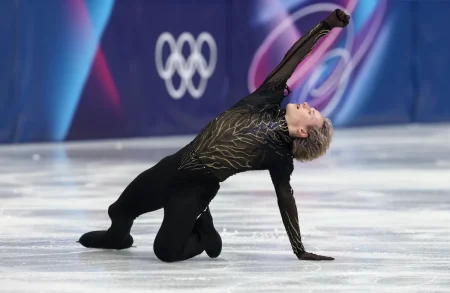Trump’s Health Declared “Exceptional” Following Recent Medical Checkup
President Donald Trump recently underwent a three-hour medical evaluation at Walter Reed National Military Medical Center, where his physician, Navy Capt. Sean Barbabella, pronounced him in “exceptional health.” This follow-up assessment included laboratory tests and preventive health measures, during which the 79-year-old president also received his annual flu shot and COVID-19 booster vaccine. The evaluation comes as part of routine presidential healthcare, though it has attracted particular attention given Trump’s status as the oldest person ever elected to the U.S. presidency. In a one-page memo released by the White House, Dr. Barbabella emphasized that Trump “remains in exceptional health, exhibiting strong cardiovascular, pulmonary, neurological and physical performance,” even noting that the president’s cardiac age tests showed him to be 14 years younger than his chronological age.
Health concerns have become increasingly relevant in American politics, especially following the intense scrutiny of former President Biden’s age and fitness for office during the 2024 election cycle. Trump, only slightly younger than Biden, has faced his own share of health speculation, particularly after observers noticed a dark bruise on his hand that was later covered with makeup. The White House attributed this to Trump’s chronic venous insufficiency diagnosis, describing it as “a benign and common condition, particularly in individuals over the age of 70.” Despite this explanation, public curiosity about the president’s wellbeing has persisted, highlighting the significance of presidential health as both a practical governance concern and a political talking point in an era when America’s leaders are increasingly from older generations.
Prior to this recent checkup, Trump had already completed his annual physical in April, which found him “fully fit” to serve as president. That examination revealed notable health improvements, including a 20-pound weight loss since June 2020 and maintenance of what was described as an “active lifestyle.” The president underwent an additional medical evaluation in July after experiencing “mild swelling” in his legs, which led to his diagnosis of chronic venous insufficiency—a condition common among older adults that causes blood to pool in the veins. This series of medical examinations provides a timeline of presidential health monitoring that the White House has presented as evidence of Trump’s fitness for the demanding role of commander-in-chief.
It’s worth noting, however, that American presidents maintain significant discretion regarding what health information is shared with the public. This long-standing tradition allows administrations to control the narrative around a president’s physical condition, potentially limiting full transparency. The practice cuts across party lines and presidential administrations, reflecting the complex balance between a leader’s right to medical privacy and the public’s interest in knowing about the health status of their elected officials. While Dr. Barbabella’s memo provides certain specific health metrics and conclusions, the complete details of Trump’s medical examinations and any underlying conditions remain largely between the president and his medical team.
Looking back at Trump’s health history, his previous medical evaluations have consistently painted a picture of robust health despite his advanced age. Following his April checkup, Trump himself remarked, “Overall, I felt I was in very good shape.” This sentiment aligns with the narrative his administration has maintained throughout his presidency—one of exceptional vigor and stamina despite being the oldest president in American history. The White House has been proactive in addressing visible health concerns, such as the hand bruising, providing medical explanations before speculation could dominate the news cycle. This approach represents a strategic effort to manage public perception around the president’s fitness for office, particularly given the age-related criticisms that have become increasingly common in modern American politics.
The timing of this latest health assessment is particularly significant as it preceded Trump’s planned diplomatic trip to the Middle East amid ceasefire negotiations in Gaza. The rigorous travel schedule and high-stakes diplomatic engagements of a sitting president demand considerable physical and mental stamina, making health evaluations before such trips a matter of practical necessity as well as public interest. As Trump continues his presidency, his medical status will likely remain under scrutiny, reflecting broader societal conversations about age, leadership, and the physical demands of the world’s most powerful political office. While the White House continues to project confidence in the president’s exceptional health, the American public and international observers will undoubtedly continue to watch closely for any signs that might contradict this official narrative.














